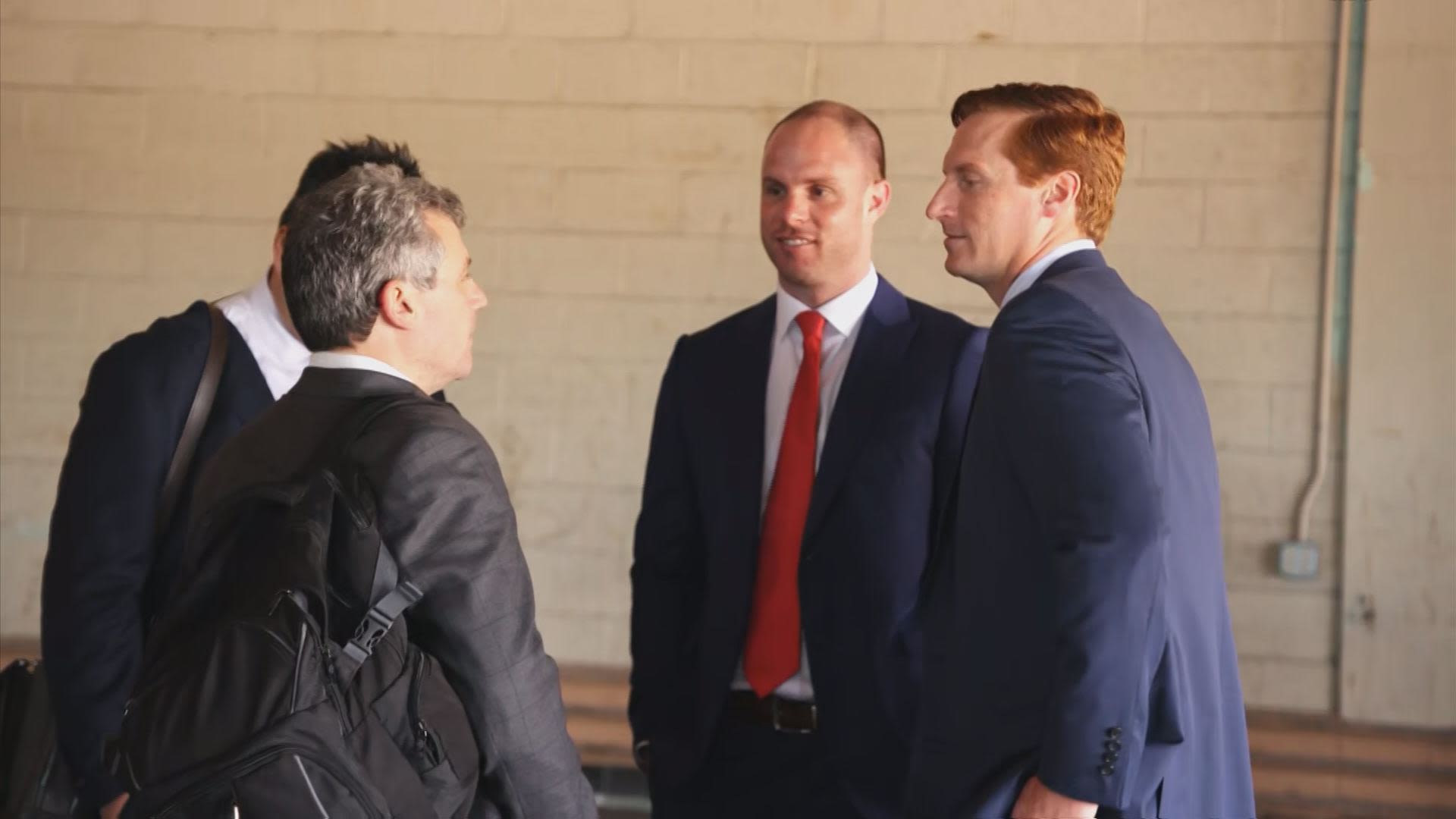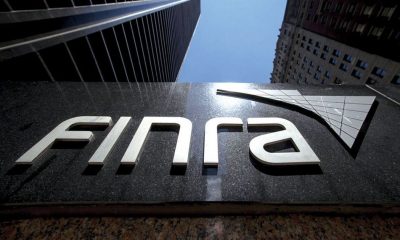BUSINESS NEWS
Probe tied to ‘microcap fraud’ case may include former Riot Blockchain CEO
[ad_1]
John O’Rourke (right) former CEO of Riot Blockchain after a shareholders meeting in Oklahoma City on May 9, 2018.
Source: CNBC
Federal authorities have launched a criminal investigation into a group that appears to include the former chief executive of Riot Blockchain, the cryptocurrency company that was the subject of a CNBC investigation last year, according to court documents.
The investigation is parallel to a Securities and Exchange Commission case that brought claims against John O’Rourke, former CEO of Riot Blockchain, and others in alleged pump and dumps unrelated to Riot.
The criminal case is being handled by the U.S. attorney’s office out of San Francisco, according to the transcript of a May hearing from the civil SEC case obtained by CNBC. It is unknown what companies or activities are being examined. A spokesman for the U.S. attorney’s office did not respond to CNBC’s request for comment.
In September, the SEC said it charged a group of 10 individuals and 10 associated entities that included O’Rourke, as well as Barry Honig, who was once the largest shareholder of Riot, in a scheme the agency said generated more than $27 million from alleged unlawful stock sales.
According to the SEC’s press release, Honig and his associates, based in South Florida, manipulated the stock of three companies in “pump-and-dump” schemes, where they allegedly acquired shares at a discount and artificially boosted prices before selling. Riot Blockchain was not one of the companies.
The SEC described the defendants as “microcap fraudsters” in the press release.
O’Rourke left Riot in the wake of the charges. The SEC already settled in full or in part with nine defendants, including Miami biotech billionaire Phillip Frost, according to court filings.
A separate criminal investigation was confirmed by both a lawyer for the SEC and a lawyer for O’Rourke in the case during the May 15 hearing about a schedule for discovery material. CNBC obtained a transcript of the hearing on Tuesday. This was the first time a criminal investigation was confirmed.
Nancy Brown, a lawyer for the SEC, disclosed during that hearing that “there is a parallel criminal investigation. It’s not a dual investigation, it’s a parallel investigation,” according to the transcript.
During the hearing O’Rourke’s attorney, Gregory Morvillo, said, “So putting our clients at the end [of the deposition schedule], particularly in light of the fact that there’s a criminal investigation in San Francisco into the very allegations that has been on ongoing, makes sense and is protective of my clients,” according to the transcript.
“My understanding is they [the U.S. Attorney’s Office] now have a cooperating witness and things have slowed down,” Morvillo said.
The witness, he said, is “among the defendants in this group, I believe, [who] has started to cooperate, and there may be a criminal case coming down the pike reasonably shortly,” according to the transcript.
Morvillo and his co-counsel for O’Rourke did not respond to CNBC’s request for comment.
The SEC and a lawyer for Honig also declined to comment, as did lawyers for the other SEC defendants who have not settled.
Barry Honig, a venture capitalist and micro-cap investor, was once one of the largest investors in Riot Blockchain.
Source: barryhonig.com
“It means they [the defendants] have bigger problems than the SEC,” Jake Zamansky, of the securities law firm Zamansky LLC, said of the prospect of a criminal case.
If criminal charges are filed, the SEC case will likely be stayed, according to Peter Henning, a professor of law at Wayne State University in Detroit, and a former senior attorney in the division of enforcement at the SEC. The SEC can give the information it has gathered to the U.S. attorney’s office, he said.
A CNBC investigation in February 2018 found a number of red flags at Riot Blockchain, including annual meetings that were postponed at the last minute, sales of stock by company insiders soon after the company’s name change, dilutive share issuances on favorable terms to large investors, confusing SEC filings and evidence that a major shareholder was selling shares while everyone else was buying.
As bitcoin’s price hit record highs in late December 2017, Riot was making news on a daily basis. The company’s stock shot from $8 a share to more than $40 as investors chased the craze of all things crypto.
[ad_2]
Source link













